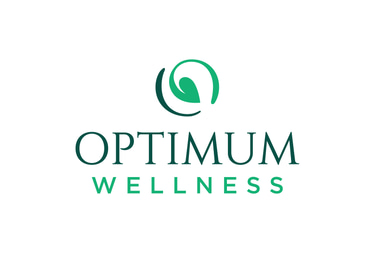
Integrative Cancer Support
Our Approach to Integrative Cancer Support
Our goal is to support your body’s natural ability to recover and maintain strength during and after medical treatment—while being mindful of the unique needs of individuals with a compromised immune system.
Whether you are looking for a wellness-focused plan during cancer treatment, support for recovery after chemotherapy or radiation, or guidance to improve overall health, our integrative approach is designed to complement your oncology care—not replace it. We focus on helping patients feel stronger, more resilient, and more supported throughout their journey.
A Supportive, Holistic Philosophy
Traditional cancer treatments are essential and lifesaving, yet many individuals also seek support for nutrition, energy, immunity, stress, and overall well-being. Our approach looks at factors that may influence whole-body health—such as nutritional status, environmental exposures, inflammation, stress, and lifestyle patterns—while always respecting and coordinating with standard medical care.
Our role is to provide wellness support that helps individuals cope with treatment, reduce stress, improve quality of life, and support their overall health.
High-Dose IV Vitamin C
IV Vitamin C is used in integrative medicine as a wellness support option for individuals seeking antioxidant replenishment, immune support, or help managing fatigue. Research has explored its potential roles in cellular health, oxidative stress balance, and overall wellness for individuals undergoing conventional cancer treatment.
Healthy cells rely on oxygen-based metabolism to produce energy, while research suggests that high concentrations of Vitamin C may create an oxidative environment that some cells are more sensitive to. Importantly, this area is still being studied, and results vary between individuals.
The early work of Ewan Cameron and Nobel laureate Linus Pauling in the 1970s helped bring attention to Vitamin C in the context of cancer research, leading to decades of continued scientific interest. Today, high-dose IV Vitamin C remains an area of ongoing study in integrative and supportive care settings.
Again, IV Vitamin C is not a cancer treatment, but some individuals find it helpful for wellness, recovery, and quality-of-life support during their medical care.
Potential Wellness Benefits Reported in Research
Some studies suggest that high-dose IV Vitamin C may help support:
Energy and vitality
Immune function
Oxidative stress balance
Quality of life during treatment
General well-being
These findings are considered supportive, not curative, and IV Vitamin C should always be used as a complement—not an alternative—to oncology treatment.
Oral vs. IV Vitamin C
Oral Vitamin C has many general health benefits, but the body can only absorb a limited amount at one time through the digestive system. IV administration allows Vitamin C to reach much higher serum levels, which is why it is used in research studying antioxidant and wellness effects.
Safety Considerations
High-dose IV Vitamin C is generally well tolerated, but it is not appropriate for everyone. It is contraindicated for individuals with:
G6PD deficiency
Kidney disease or reduced kidney function
Iron overload disorders
Those undergoing dialysis
All patients are screened prior to treatment to ensure safety.
Support at Every Stage
Receiving a cancer diagnosis can be overwhelming, making it difficult to maintain healthy routines. Integrative wellness care can help individuals:
Support energy and strength
Manage stress
Improve sleep
Maintain nutritional balance
Support recovery after treatment
Improve overall quality of life
Our goal is to walk alongside you—to support your well-being, help you cope with the challenges of treatment, and provide a safe space to restore balance in both body and mind.
References
Mussa A, Mohd Idris RA, Ahmed N, Ahmad S, Murtadha AH, Tengku Din TADAA, Yean CY, Wan Abdul Rahman WF, Mat Lazim N, Uskoković V, Hajissa K, Mokhtar NF, Mohamud R, Hassan R. High-Dose Vitamin C for Cancer Therapy. Pharmaceuticals (Basel). 2022 Jun 3;15(6):711. doi: 10.3390/ph15060711. PMID: 35745630; PMCID: PMC9231292.
Yun J., Mullarky E., Lu C., Bosch K.N., Kavalier A., Rivera K., Roper J., Chio I.I., Giannopoulou E.G., Rago C., et al. Vitamin C selectively kills KRAS and BRAF mutant colorectal cancer cells by targeting GAPDH. Science. 2015;350:1391–1396. doi: 10.1126/science.aaa5004.
Cameron E., Campbell A. The orthomolecular treatment of cancer. II. Clinical trial of high-dose ascorbic acid supplements in advanced human cancer. Chem. Biol. Interact. 1974;9:285–315. doi: 10.1016/0009-2797(74)90019-2.
Cameron E., Pauling L. Supplemental ascorbate in the supportive treatment of cancer: Prolongation of survival times in terminal human cancer. Proc. Natl. Acad. Sci. USA. 1976;73:3685–3689. doi: 10.1073/pnas.73.10.3685.
Cameron E., Pauling L. Supplemental ascorbate in the supportive treatment of cancer: Reevaluation of prolongation of survival times in terminal human cancer. Proc. Natl. Acad. Sci. USA. 1978;75:4538–4542. doi: 10.1073/pnas.75.9.4538.
Murata A., Morishige F., Yamaguchi H. Prolongation of survival times of terminal cancer patients by administration of large doses of ascorbate. Int. J. Vitam. Nutr. Res. 1982;23:103–113.
Assouline S, Miller WH. High-dose vitamin C therapy: renewed hope or false promise? CMAJ. 2006 Mar 28;174(7):956-7. doi: 10.1503/cmaj.060228. PMID: 16567756; PMCID: PMC1405871.
Ha Y.M., Park M.K., Kim H.J., Seo H.G., Lee J.H., Chang K.C. High concentrations of ascorbic acid induces apoptosis of human gastric cancer cell by p38-MAP kinase-dependent up-regulation of transferrin receptor. Cancer Lett. 2009;277:48–54. doi: 10.1016/j.canlet.2008.11.020.
Du J., Martin S.M., Levine M., Wagner B.A., Buettner G.R., Wang S.H., Taghiyev A.F., Du C., Knudson C.M., Cullen J.J. Mechanisms of ascorbate-induced cytotoxicity in pancreatic cancer. Clin. Cancer Res. Off. J. Am. Assoc. Cancer Res. 2010;16:509–520. doi: 10.1158/1078-0432.CCR-09-1713.
Ma E., Chen P., Wilkins H.M., Wang T., Swerdlow R.H., Chen Q. Pharmacologic ascorbate induces neuroblastoma cell death by hydrogen peroxide mediated DNA damage and reduction in cancer cell glycolysis. Free. Radic. Biol. Med. 2017;113:36–47. doi: 10.1016/j.freeradbiomed.2017.09.008.


